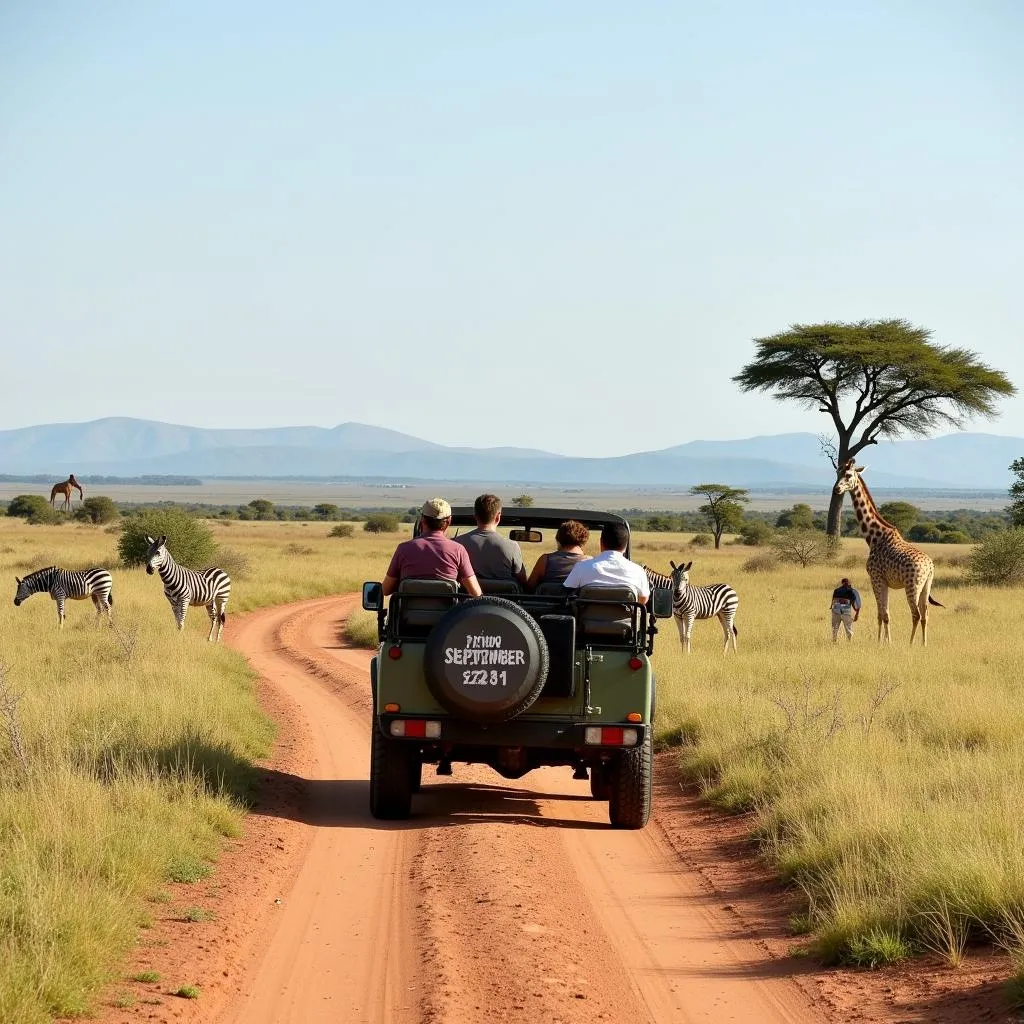The Rise of African Distance Runners: A Legacy of Speed and Endurance
The athletic world is in awe of the dominance of African Distance Runners. From the rugged terrains of Ethiopia and Kenya to the bustling cities of South Africa, the continent boasts a remarkable lineage of athletes who have shattered records and redefined the limits of human potential. This article delves into the fascinating history, cultural influences, and training regimes that have fueled the rise of African distance runners, shedding light on their remarkable achievements and the enduring legacy they have left behind.
A Rich History of Running
The tradition of running in Africa stretches back centuries, deeply ingrained in the culture and history of many communities. For generations, running served as a crucial means of transportation, hunting, and survival. The vast open plains and challenging terrains fostered a unique blend of physical endurance and tactical prowess. This innate affinity for running, passed down through generations, laid the foundation for the emergence of world-class distance runners.
The Rise of Modern-Day Champions
The late 20th century marked a watershed moment in the evolution of African distance running. Athletes like Haile Gebrselassie from Ethiopia and Paul Tergat from Kenya dominated the international scene, shattering world records and rewriting the history of distance running. Their achievements not only captivated the world but also ignited a passion for running within their communities.
Key Factors Contributing to Success
Several factors contribute to the remarkable success of African distance runners. Here are some prominent ones:
- Genetics: Research suggests that individuals of East African descent possess a unique genetic makeup that grants them an advantage in endurance sports.
- Altitude Training: Many African athletes train at high altitudes, where oxygen levels are lower. This forces their bodies to adapt, resulting in increased red blood cell production and improved oxygen utilization.
- Cultural Influences: Running plays a significant role in many African cultures, fostering a strong work ethic and dedication to physical fitness.
- Dedicated Training Regimes: African athletes often adhere to rigorous training programs that emphasize high-volume mileage, interval training, and hill workouts.
- Strong Support Systems: Communities and families play a crucial role in supporting aspiring athletes, providing encouragement and resources.
The Cultural Significance of Distance Running
Distance running has transcended athletic competition, becoming a powerful symbol of national pride and inspiration. It embodies resilience, determination, and the pursuit of excellence. The victories of African distance runners have served as a source of inspiration for their communities, fostering a sense of hope and empowerment.
“Running is not just about speed; it’s about pushing your limits, achieving your dreams, and inspiring those around you. It’s a testament to the human spirit.” – John Ngugi, Kenyan legendary runner.
Future Prospects for African Distance Running
The future of African distance running is bright. The continent continues to produce a steady stream of talented athletes who are poised to leave their mark on the world stage. With continued investment in training infrastructure, coaching expertise, and youth development programs, African runners are well-positioned to remain at the forefront of distance running for generations to come.
Frequently Asked Questions (FAQ)
Q: What are the most common types of distance races dominated by African runners?
A: African runners excel in a wide range of distance races, including marathons, half-marathons, 10,000m, and 5,000m events.
Q: How does the climate and geography of Africa influence the training of distance runners?
A: The varied terrain and hot climates of Africa provide a natural training ground, pushing athletes to adapt and build incredible endurance.
Q: Are there any specific training methods used by African runners that set them apart?
A: Many African runners incorporate traditional training methods that involve running long distances at a steady pace, interspersed with hill workouts and interval training.
Q: What is the role of international sponsorship and support in the development of African distance runners?
A: International sponsorship and support have played a crucial role in providing access to quality training resources, coaching expertise, and competitive opportunities for African athletes.
Q: What is the legacy of African distance runners on the global stage?
A: African distance runners have left an indelible mark on the sport, inspiring generations of athletes and revolutionizing the perception of distance running.
For more information about African distance runners and their incredible stories, be sure to explore our website and connect with us for any questions or queries.
